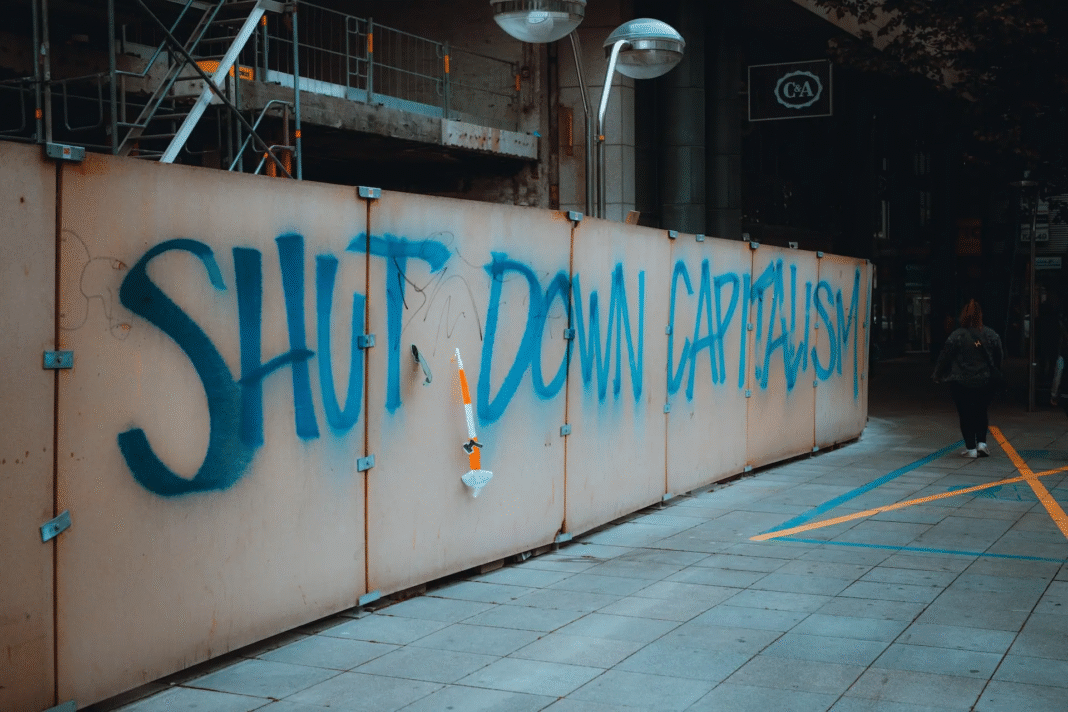
Rethinking Capitalism: A Generational Shift in Perception
Capitalism has long been the default economic system in the United States—so woven into the fabric of American identity that questioning it once seemed taboo. For decades, it was synonymous with freedom, opportunity, and the chance to build something from nothing. But times are changing.
Today, a subtle but powerful shift is taking place, particularly among younger generations. If you ask someone under 35 how they feel about capitalism, you’re just as likely to hear skepticism or outright criticism as you are to hear support. In fact, recent survey data confirms that those aged 18 to 34 are almost evenly split on whether they view capitalism positively or negatively. Among those 18–24, the tilt toward skepticism is even more pronounced.
This generational divide is worth examining—not just as a political trend, but as a mirror reflecting deeper questions about autonomy, fairness, and the meaning of success in modern life.
A System Under Scrutiny
The growing unease with capitalism among younger people doesn’t mean they’re all ready to burn down the system. Many of them are still building businesses, side hustles, and careers within capitalist frameworks. But they are asking harder questions than previous generations may have dared to ask.
Why is wealth so unevenly distributed? Why are essential workers—nurses, teachers, social workers—often underpaid and undervalued, while industries focused on finance or tech accumulate staggering wealth? Why does the dream of upward mobility seem so out of reach for so many?
These aren’t just rhetorical gripes. They reflect a very real frustration with a system that increasingly feels rigged. For many young adults burdened by student debt, rising living costs, and unstable job prospects, capitalism no longer feels like a ladder to climb. It feels more like a maze with a moving exit.
Personal Capitalism: Autonomy and Hustle
Despite the critique, not everyone is jumping ship. Take, for example, entrepreneurs and creators who’ve embraced capitalism not because they worship wealth, but because they value freedom. The ability to earn outside of traditional structures—through freelancing, running small businesses, or launching digital side hustles—can be empowering.
This perspective often stems from a desire for autonomy. The dream isn’t to become a billionaire, but to live life on one’s own terms, to not be dependent on a job or employer for survival. For many, capitalism in its best form isn’t about exploitation; it’s about independence, choice, and creativity.
And yet, this more optimistic view isn’t blind to the flaws of the system. It recognizes that while capitalism offers freedom to some, it limits access for others. The playing field isn’t level. The gatekeepers of capital—whether in venture funding, corporate hierarchies, or generational wealth—aren’t equally open to all.
The Privilege in Critiquing Privilege
It’s worth noting, too, that much of the anti-capitalist critique is voiced from a place of relative privilege. It’s often those with more stability, more time, or more money who have the luxury to denounce capitalism outright.
You rarely hear working-class families saying, “Money doesn’t matter.” That phrase, like “money doesn’t buy happiness,” tends to come from those who have more than enough of it. For those struggling to pay rent or afford basic healthcare, capitalism might be deeply flawed—but it’s also the system that holds the keys to survival and improvement.
This isn’t to invalidate the critique, but to add nuance. There’s truth in the frustration, and also truth in the recognition that making money—even a little—can be deeply transformative for people without much of it.
Beyond the Dollar: Purpose and Meaning
Ultimately, the conversation about capitalism can’t stop at profit and loss. The deeper question is about meaning.
What are we working for? Is money the goal, or just the tool?
A healthy relationship with capitalism, perhaps, starts by recognizing that while money can buy comfort, options, and even freedom, it’s not the endgame. The real goal—for most of us—is to live a life that feels worthwhile. A life that includes contribution, connection, creativity, and purpose.
Making money isn’t bad. Obsessing over it to the exclusion of all else? That’s where many go wrong.
If capitalism is going to evolve—and stay relevant—it has to leave space for values beyond profit: values like service, fairness, and long-term sustainability.
Capitalism with a Conscience?
It’s entirely possible to support free enterprise and still believe in protecting the vulnerable. A modern society can—and should—offer social safety nets, ensure access to basic needs, and elevate the dignity of all kinds of work.
You can be a capitalist and still advocate for reform. You can enjoy the freedom to build a business and still believe that some things—like education and healthcare—shouldn’t be profit-driven. These aren’t contradictions; they’re the makings of a more mature, more humane capitalism.
The Conversation Continues
So, what does capitalism mean to you?
Is it a vehicle for freedom and creativity? A system in need of deep repair? A tool, a trap, or something in between?
There are no simple answers. But asking the question—honestly, openly, and without knee-jerk defensiveness—is the first step toward shaping a better system. One that works not just for the lucky few, but for everyone willing to participate.
Because in the end, capitalism isn’t just an ideology—it’s a story we tell ourselves about work, value, and possibility. Maybe it’s time we start telling a better one.



